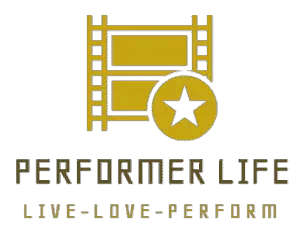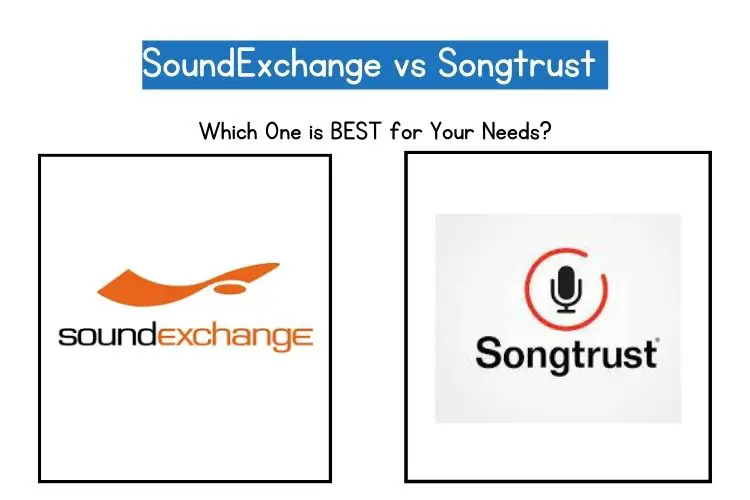There are several ways for musicians to make money from their music and one of those ways is through the earning of music royalties. Music royalties generate so much income for both artists and record labels and it remains one of the major sources of music revenue.
Anytime a song is being played or used in any form, i.e. used in a TV show/commercials, sampled or performed live on stage, that song earns a royalty.
When these royalties are earned, there are collection societies whose sole job is to track the usage of music that is registered with them, collect royalties from the users and then pay back the royalties to the musicians or labels accordingly.
The different licenses issued by these royalty collection societies help to ensure that music artists get the money they deserve—it also acts as a protection against the illegal use of a song. It takes time and effort for musicians to create music—you can’t just illegally use that music.
These collection societies play a critical role in the business of publishing music. They have all the mechanisms in place to track and collect royalties. They are vital to the tracking and registration of music compositions.
Considering how vital the collection of royalties is for the music business, there always comes a time when independent musicians and labels would have to choose which collection society they want to use. Sometimes, this can be a tough decision to make.
On that note, there is always confusion on what are the differences between SoundExchange and Songtrust and also which to use. These two organisations are quite popular in the business of music royalty collection. But they are different.
SoundExchange is the main organization designated by the U.S. Library of Congress to collect and allocate digital performance royalties for sound recordings.
On the other hand, Songtrust collects all the royalties arising from compositions on behalf of songwriters and publishers.
This means SoundExchange only collects digital performance royalties arising from the master recordings on behalf of master owners and performers. The master owners could be indie artists or even record labels.
In this article, we will further explain and get to understand the things and features that differentiate these two collection societies. However, what is clear is that their major difference lies in the type of royalty they collect.
Table of Contents
4 Types of Music Royalties
Royalties are payments made to the owners and holders of intellectual property for their use. In this context, royalties are the income earned by songwriters, composers, recording artists, publishers, and other rights holders for the use of their music.
There are 4 types of Royalties:
1. Mechanical royalties
These are usually earned when a composition is reproduced or mechanically reproduced, typically in physical or digital copies. It includes sales and distribution of CDs, vinyl records, digital downloads, and streaming services.
For example, if you have an album with physical and digital copies, you’ll receive mechanical royalties from distributing these copies.
Record labels or streaming platforms often pay mechanical royalties to the songwriter, composer, or publisher based on the composition’s number of copies or streams.
2. Performance royalties
When a song is played or aired publicly, performance royalties are generated. It includes radio and television performances, live concerts, streaming services, and other public places.
Performance royalties are usually distributed to the featured artist, producer, non-featured performers, and labels related to the song. For example, if your performance is played on air at a radio station, you’ll receive a percentage of the royalties from that airplay.
In most places, performance royalties are often collected by Performance Rights Organizations. These organizations track and collect royalties for songwriters, composers, and music publishers for the usage of their songs in public.
3. Synch Royalties
When a piece of music is combined with visual media such as films, TV shows, ads, video games, and other audiovisual ventures, synchronization royalties should be earned.
It entails granting permission for the piece to be used in connection with specified settings, visuals, or tales. For example, if your song is played in the credits of a movie or a scene, you’ll receive such royalties.
The entity employing the piece in their visual media creation negotiates and pays sync royalties to the songwriter, composer, or publisher.
4. Print Music Royalties
Print royalties are received when a composition’s sheet music or printed music scores are sold or distributed.
It applies to physical sheet music books, individual sheet music purchases, and digital sheet music downloads. Print royalties are often given to the songwriter, composer, or publisher based on sheet music sales or distribution.
An example is if you buy the score to a composer’s song, like a score to Hans Zimmer’s Interstellar, then the composer will receive royalties from the purchase.
All About SoundExchange
SoundExchange is a non-profit organization that helps recording artists, master rights owners, and independent record labels in the United States collect and distribute their digital performance royalties. They are a performance rights organization (PRO).
SoundExchange was established in 2003 as a response to the rapid growth of digital music platforms. Its primary goal was to ensure that artists and copyright owners receive fair compensation for the digital performances of their sound recordings.
It was particularly used in non-interactive digital radio services like Pandora, SiriusXM, and various online streaming platforms.
SoundExchange collects royalties from digital music services, including radio, cable TV music channels, and other digital platforms, for the public performance of sound recordings.
These services are required by law to pay royalties for using sound recordings, and SoundExchange acts as the intermediary to collect and distribute those royalties.
Once SoundExchange collects the royalties, it distributes them to the appropriate rights holders like recording artists, featured performers, non-featured performers (session musicians), and sound recording copyright owners (record labels).
SoundExchange has a database of sound recording metadata that helps identify the correct rights holders for each recording.
Artists and performers must register directly or with labels with the organization to receive their royalties. Thankfully, registration is completely free.
SoundExchange takes 4.5 % of the royalties and distributes the rest as follows:
- 45% goes to the featured artist.
- 5% goes to the non-featured artists (such as backing musicians)
- 50% goes to the copyright owner or record label.
SoundExchange also collaborates with international PROs and organizations, allowing them to collect royalties for US artists when their recordings are played on international platforms as well as foreign artists for their US performances.
Another service you can find in SoundExchange is the SoundExchange Direct program. This program allows independent artists and small labels to collect their digital performance royalties directly from SoundExchange without needing a third-party administrator.
SoundExchange also manages an unclaimed royalties program, where it holds and seeks to distribute royalties that have been collected but not yet claimed by rights holders. They actively work to locate and distribute these unclaimed funds to the rightful recipients.
All About Songtrust
Songtrust is a music publishing administration service that helps songwriters, composers, and music publishers collect royalties from their compositions worldwide.
Songtrust was founded in 2011 as a royalty collection platform for music creators to help publishers maximize their earnings by ensuring proper collection and administration of royalties.
With a vast network of global collection societies and licensing organizations, Songtrust can easily collect royalties from the public use of compositions.
Songtrust helps songwriters and publishers collect all types of royalties, including performance royalties, mechanical royalties, synchronization royalties, and more.
Songtrust has worldwide coverage and collects royalties from multiple territories around the world. It ensures that songwriters and publishers can access and collect royalties from different countries, regardless of their location.
For songwriters to register, there is a one-time $100 flat fee. Songtrust usually takes a commission of 15% from the royalties.
Songtrust offers an easy-to-use platform for songwriters and publishers to register their compositions, manage their music catalogues, and track their catalogue’s performance and earnings.
Songtrust acts as a publishing administrator, helping songwriters and publishers handle the administrative aspects of music publishing.
It includes registering compositions with performance rights organizations (PROs). Songtrust provides detailed royalty tracking and reporting to help songwriters and publishers monitor their earnings.
They offer transparent and comprehensive reporting on royalty collection, showing which compositions have generated income and from which sources.
Songtrust offers YouTube Content ID, which helps songwriters and publishers identify and monetize compositions used in YouTube videos. This feature enables the detection of compositions and the collection of royalties from user-generated content on the platform.
SoundExchange vs Songtrust
Songtrust and SoundExchange are royalty collection entities in the music industry, but they serve different purposes and focus on different aspects of royalty collection and administration.
Here’s a comparison between Songtrust and SoundExchange:
Purpose
Songtrust is a music publishing administration service that helps songwriters and music publishers collect royalties from their compositions worldwide. It focuses on the administration and collection of publishing royalties.
On the other hand, SoundExchange is a non-profit performance rights organization (PRO) that collects and distributes digital performance royalties for recording artists, master rights owners, and independent record labels.
It focuses on collecting royalties for the digital performance of sound recordings.
Royalty Collection
While SoundExchange primarily collects digital performance royalties, Songtrust specializes in collecting various types of publishing royalties, including performance royalties, mechanical royalties, synchronization royalties, and more.
SoundTrust covers royalties generated from the public use of compositions, while SoundExchange focuses on collecting royalties for the digital performances of sound recordings.
Rights Holders
The artists that Songtrust serves include songwriters, composers, and music publishers, and it helps them administer and collect royalties from their compositions.
SoundExchange represents recording artists, featured performers, non-featured performers, and sound recording copyright owners (record labels). It collects and distributes royalties on behalf of these rights holders.
Registration and Commissions
To join both organizations, an artist needs to register. However, the registration processes are different. For SongTrust, you must pay a one-time, flat fee of $100 when registering. On the other hand, registration for SoundExchange is completely free.
Songtrust takes a commission of 15% from the royalties and disburses the rest to the artist. In comparison, SoundExchange takes a 4.5% commission from the royalties and distributes the rest to the featured artist, non-featured artist, and the copyright owner, often the label.
Global Coverage
Songtrust has a global reach and collects royalties from various territories worldwide. It ensures that songwriters and publishers can access and collect royalties from different countries.
SoundExchange primarily operates in the United States, collecting royalties from digital services and platforms operating within the U.S. market. It has reciprocal agreements with international PROs to collect royalties for the U.S.
| SoundExchange | Songtrust | |
| Royalties | Performance royalties | Royalties from compositions and music publishing |
| People | Recording artists, featured performers, non-featured performers, sound recording copyright owners/ labels | Songwriters, composers, and music publishers |
| Location and Coverage | Primarily focused on the United States | Global coverage for royalty collection |
| Registration | Free registration | %100 registration fee |
| Commission | 4.5% of royalties | 15% of royalties |
| Services | Royalty collection and distribution | Publishing administration, royalty collection, data and analytics, rights management |
Do You Need Both?
Many music creators find value in utilizing both SoundExchange and Songtrust to ensure they receive proper compensation for their work. However, deciding on this depends on your specific role in the music industry and your goals as a music creator.
If you are primarily focused on sound recordings and digital performances, then you should register for SoundExchange.
On the other hand, if you are a songwriter, composer, or music publisher looking for comprehensive publishing administration and royalty collection services, Songtrust is a valuable tool for managing your royalties.
For independent artists who do both songwriting or composing and performing and recording, you may have considered joining both SongTrust and SongExchange.
If you’re a session or performing artist who owns the master recordings, registering with SoundExchange can ensure you receive all the royalties you are owed.
However, suppose you’ve already signed up with a music distributor like DistroKid that collects these royalties for you, and your music is mostly played. In that case, you may not need to register with SoundExchange.
Considering the costs for registering and being a part of SongTrust ($100 sign-up fee and 15% commission), it’s better for you to join if your music is gaining much traction to recoup that amount of money.
It’s also better to hold off on registering with Songtrust if your music is only streamed in your home country. It’s much better to register with a Local PRO since they usually do not take a percentage and usually do not have a setup fee.
If you have compositions used publicly worldwide, signing up for SongTrust will help you track your royalties instead of signing up for different PROs in each country.
You should consider getting both if you’re an artist whose composition has gained thousands of plays around the world and if you own the master recordings or perform music and you don’t already have a distributor.
Conclusion
Both SoundExchange and Songtrust offer valuable services in the music industry, but they serve different purposes and cater to different aspects of the music business.
SoundExchange specializes in collecting and distributing digital performance royalties specifically for sound recordings.
On the other hand, Songtrust is a global music publishing administration platform that helps songwriters, composers, and publishers manage their music publishing rights and collect royalties worldwide.
Suppose you have compositions that are played worldwide, and you are also a performer without a distributor.
In that case, you may consider registering for both, but most artists register for one or the other, depending on the kind of royalties they need to track.


![Kaotica Eyeball vs Fatboy: ALL You Need to Know [2023]](https://performerlife.com/wp-content/uploads/2022/05/Kaotica-fatboy-211x150.jpg)

![What Happened To “Chief Keef”? [Everything to Know About This Rapper]](https://performerlife.com/wp-content/uploads/2022/05/Chief-Keef-211x150.jpg)